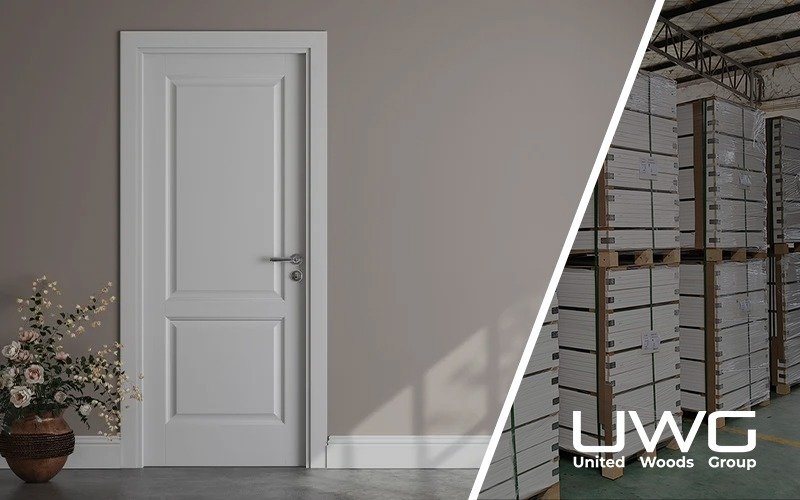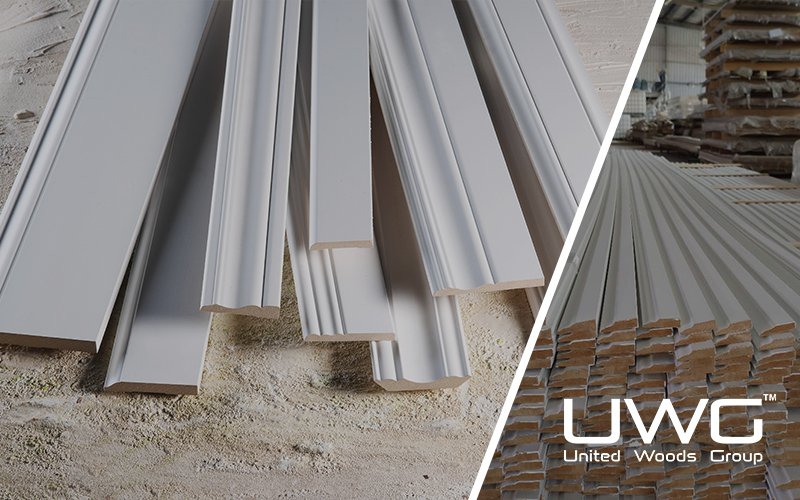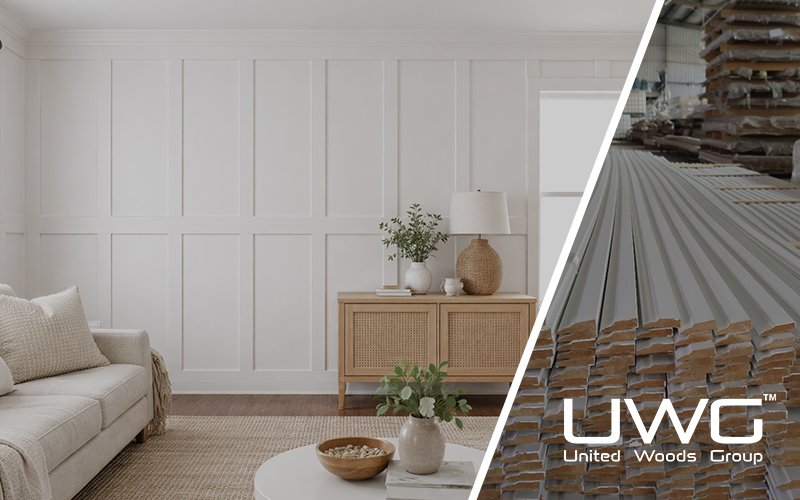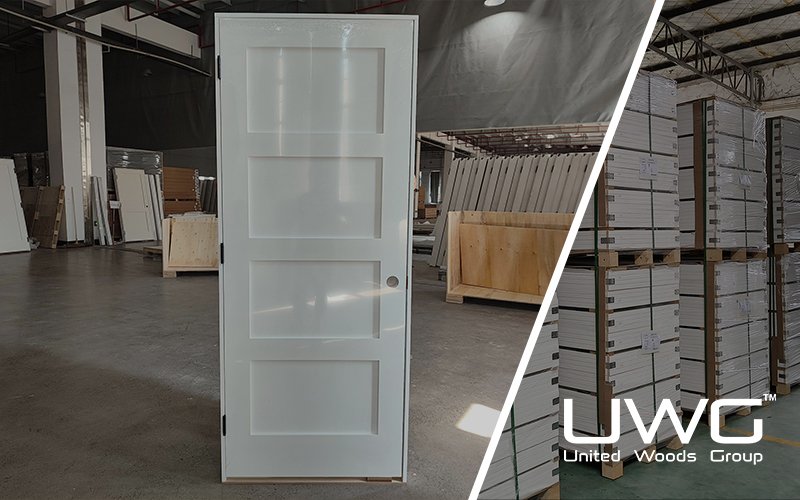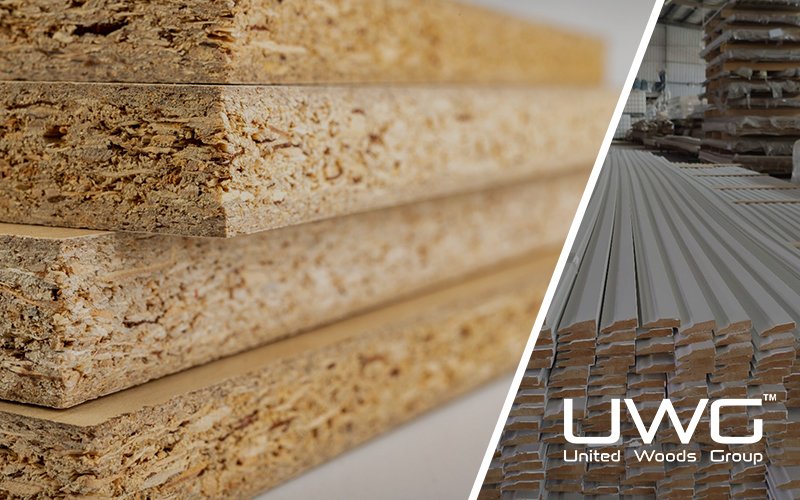Imagine walking through a home where each room has its own unique character. The elegant doors welcome you into the living room, while the sleek sliding doors lead you to a cozy bedroom. Interior doors are more than just passageways; they are elements of style and functionality that define the spaces within a home. For wholesalers, understanding the nuances of interior doors can open the door (pun intended) to numerous business opportunities. So, let’s embark on a journey to explore what interior doors are and how they can be a game-changer for your wholesale business.
Interior doors are the doors inside a building that provide privacy, separate spaces, and enhance the overall aesthetics of the interiors. They come in various styles and materials, with hollow and solid doors being the most common types in the North American market.
Types of Interior Doors
Panel Doors: Traditional and versatile, panel doors are the most common type of interior door, featuring multiple panels that can be arranged in various configurations.
French Doors: Elegant and classic, French doors have glass panes that extend most of the door’s length, providing an open and airy feel.
Sliding Doors: Ideal for spaces where a swinging door might take up too much room, sliding doors are perfect for closets and small rooms.
Pocket Doors: Similar to sliding doors, pocket doors slide into the wall, making them a great space-saving solution.
Bi-fold Doors: Often used for closets and laundry rooms, bi-fold doors fold in half to open, offering easy access.
Flush Doors: These doors have a smooth, flat surface and are often used in modern and minimalist interiors.

Materials Used in Interior Doors
Hollow Core Doors: Hollow core doors are typically constructed with a lightweight wooden frame that forms the perimeter of the door. Inside the frame, a honeycomb core made of cardboard or other lightweight materials is used to fill the space, providing structural support and reducing weight. The exterior surfaces are usually made of thin wood veneers or MDF (Medium-Density Fiberboard) panels, which are glued to the frame and core. This construction makes hollow core doors affordable and easy to handle, though they offer less sound insulation and durability compared to solid core doors.
Solid Core Doors: Solid core doors have a more robust construction. They consist of a solid core made of particleboard, MDF, or a solid wood composite material that fills the entire interior of the door. This core provides substantial weight and density, enhancing the door’s sound insulation and durability. The core is encased in a wooden frame, and the exterior surfaces are finished with wood veneers or MDF panels, similar to hollow core doors. Solid core doors are preferred in areas where privacy and noise reduction are important, such as bedrooms and bathrooms.
Benefits of Different Core Doors for Wholesalers
Hollow Core Doors:
Affordability: Lower production costs make them an economical choice for bulk purchases.
Ease of Handling: Their lightweight nature simplifies transportation and installation, reducing labor costs.
Wide Market Appeal: Suitable for budget-conscious customers and large-scale residential projects.
Solid Core Doors:
Enhanced Durability: Strong and long-lasting, reducing the need for frequent replacements.
Sound Insulation: Superior soundproofing qualities, appealing to customers seeking privacy and quiet.
Premium Appeal: High-quality construction that attracts customers looking for luxury and reliability.
Tips for Wholesalers on Marketing and Selling Interior Doors
Highlighting Features: Emphasize the benefits of both hollow and solid core doors, such as cost-effectiveness, durability, and sound insulation, to meet the diverse needs of your customers.
Market Segmentation: Tailor your marketing strategies to different segments, such as residential builders, commercial contractors, and DIY enthusiasts.
Offering Customization: Provide options for custom sizes, finishes, and hardware to cater to specific customer preferences and design requirements.
Building Relationships: Develop strong relationships with reliable manufacturers and suppliers to ensure consistent quality and supply.
Staying Informed: Keep up with market trends and consumer preferences to offer products that are in demand and stay ahead of the competition.
Providing Support: Offer excellent customer service, including detailed product information, installation guides, and after-sales support to build trust and loyalty with your clients.
Summary
Understanding the intricacies of interior doors can significantly benefit wholesalers in making informed decisions and meeting customer demands. By focusing on types, materials, manufacturing processes, key features, market trends, and supplier selection, wholesalers can effectively navigate the market and expand their business opportunities. Keep these points in mind as you explore the world of interior doors and discover the potential it holds for your wholesale business.

